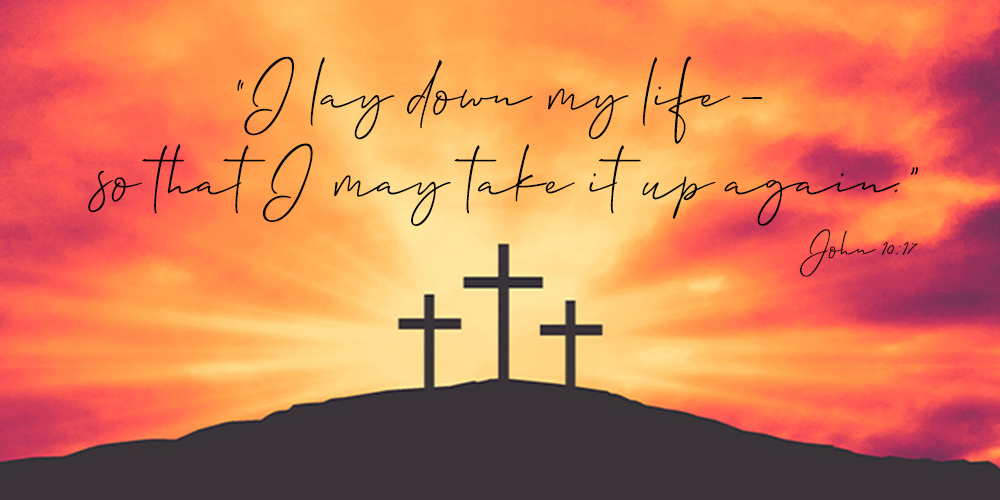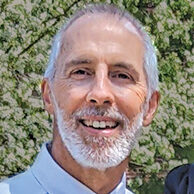 |
Jesus’ purpose in laying down his life was so that after three days he could take it up victoriously.
It was my first experience with death. I’ll never forget standing there and looking at the lifeless body in the casket. I was a freshman in high school at the time. My classmate and good friend for years had died of leukemia.
I remember praying, “Jesus, make him alive again. You raised Lazarus. You raised the widow’s son. You raised a little girl who was maybe his age. Why don’t you raise him!?” My friend didn’t come back to life. He stayed dead.
All will die
I learned something that day about life: Death is part of our life. Since then I have stood next to many bodies in caskets, and they all remained dead: my mother and father, aunts, uncles, cousins, friends. Perhaps you have too. Perhaps you have hoped for a resurrection as I once did. But it doesn’t happen.
Benjamin Franklin is credited with making this phrase famous: “There is nothing certain except death and taxes.” Indeed in all of history, with but two exceptions (Enoch and Elijah), no one has escaped death. Even Jesus died.
But Jesus died because he chose to lay down his life. His authority as the Son of God included authority over life and death. He laid down his life in order to pay for our sins.
Jesus defeated death
But Jesus tells us that he also laid it down “so that [he] may take it up again” (John 10:17).
Not just once or twice, but many times Jesus told his disciples that after three days he would rise again. One time when the Jewish leaders asked for a sign that Jesus had the authority to clear the greedy money changers and sheep traders out of the temple courts, Jesus’ response was to tell them, “Destroy this temple, and I will raise it up in three days” (John 2:19).
Scripture tells us that the temple he was talking about was his body, which he would raise from the dead. Jesus had that right because he is the Son of God. It was always part of God’s plan that Jesus would take up his life again. That’s why he laid it down.
His purpose in laying down his life was so that after three days he could take it up victoriously. By laying it down, Jesus defeated the power of sin, death, and Satan.
But if that had been the end, if Jesus had remained in the tomb, then he really wouldn’t have defeated death. Since death is the payment for sins, if Jesus hadn’t paid for our sins and removed them once and for all, then he wouldn’t have been able to take up his life again. Death would have defeated him. Jesus tasted death because of our sins. But he didn’t stay dead, because he paid for our sins.
We call that being justified. “He was delivered up for our trespasses and raised for our justification” (Romans 4:25). Therefore, the power of death, which is sin, is defeated. After three days, Jesus took up his life again because death couldn’t hold him. Death had lost its sting.
We now will have life
Human beings like to be in control. We like to feel secure about our lives. So death unnerves us. We have no control over it.
We try. We try to stay in shape. We try to come up with new medicines and new treatments that can make us live longer. We avoid certain foods. We insist on safety inspections for airplanes and vehicles. We study societies that have longer lifespans, hoping to find the right food or the right lifestyle to keep us from aging.
We are trying to be in control. We fear dying.
But death ultimately controls us. It pursues us from the moment we are born. Sometimes we put it in the back of our mind, but it’s always there lurking. We see someone die young, and we swallow hard. We might be next. We are terrified of hearing the C word.
The hymn writer put our thoughts and feelings to paper when he wrote, “Grim death pursues me all the way, nowhere I rest securely; he comes by night, he comes by day, he takes his prey most surely. A failing breath, and I in death’s strong grasp may lie to face eternity today; grim death pursues me all the way” (Christian Worship 836:3).
When Jesus took up his life again, he was also saying something about us. He took up his life again because God accepted his payment for our sins and closed the book on our debt. Jesus’ resurrection is our divine mortgage burning.
We are declared debt-free. No more wages of sin. Jesus took up his life to show that we now have life with our heavenly Father. Death controls us no longer. Life is ours already in Christ. Life that does not end.
The casket is still there. It still hurts. It still makes us want to cry. But because Jesus took up his life again, that casket is not the end of the story. A glorious day awaits all who enter that casket in Christian faith. Death cannot hold them either. They too will rise from the grave. Their bodies too will have life again.
Jesus took up his life to show that we now have life with our heavenly Father. Death controls us no longer.
This fact doesn’t remove the tears now, but it dries them in eternity. This fact doesn’t remove all the pain now, but it does allow for joy in the midst of sadness.
I didn’t know it when I stood at my friend’s casket, but Jesus answered my prayer that day. No, my friend didn’t rise just then. But because Jesus took up his life after laying it down for our sins, my friend will rise. I will see him again.
It’s almost too good to be true.
Almost.
This is the final article in a two-part series on John 10:17,18. Read the first article.
Author: Joel V. Petermann
Volume 110, Number 04
Issue: April 2023







